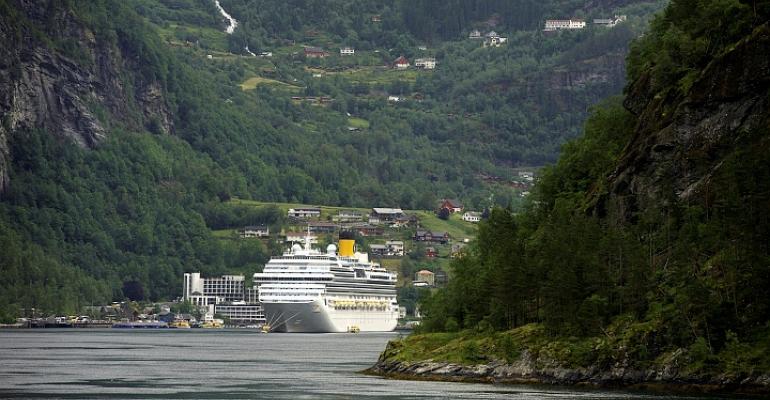The Norwegian Maritime Authority (NMA) has proposed that fuel being used on ships in the world heritage fjords must have a maximum sulphur content of 0.1%. The authority has also proposed a prohibition against the use of exhaust gas cleaning systems, or scrubbers, including both open, closed and hybrid systems.
“The government wishes to reduce the emissions and discharges from cruise ships. Stricter requirements for ships in the world heritage fjords would be a step in the right direction,” said Ola Elvestuen, minister of climate and environment.
FREE DOWNLOAD | 2020 Sulphur Cap: Is the industry ready for the long run?
The latest proposals follow an announcement in June this year by NMA calling for a review of new legislation for reduced emissions and discharges in the Nærøyfjord, Aurlandsfjord, Geirangerfjord, Sunnylvsfjord and Tafjord. The review included, among other things, stricter sulphur requirements for the entire area, stricter requirements for NOx emissions, prohibition against the discharge of sewage, regulations on the use of exhaust gas cleaning systems and requirement for an environmental instruction.
Based on the comments received, the NMA is now proposing even stricter requirements in the new legislation.
If the new legislation is enforced, ships that currently use heavy fuel oil combined with scrubbers will have to switch to use marine diesel instead when sailing in the world heritage fjords.
Read more: Norway seeking zero emissions from shipping
“Experience shows that today’s cleaning systems emit visible smoke emissions, and some systems also generate discharges to sea. Even if the visible smoke is partly water vapour, it has a negative impact on people’s experiences of our world heritage fjords,” said Bjørn Pedersen, head of department of legislation and international relations in the NMA.
Additionally, NMA wants to prohibit incineration of waste on board ships in the world heritage fjords, which will contribute to reducing the visible smoke emissions.
Under the upcoming IMO 2020 regulation and in existing Emissions Control Areas (ECAs), ships burning high-sulphur fuel are permitted to use scrubbers to achieve the 0.5% sulphur content compliant fuel.
Copyright © 2024. All rights reserved. Seatrade, a trading name of Informa Markets (UK) Limited. Add Seatrade Maritime News to your Google News feed.


